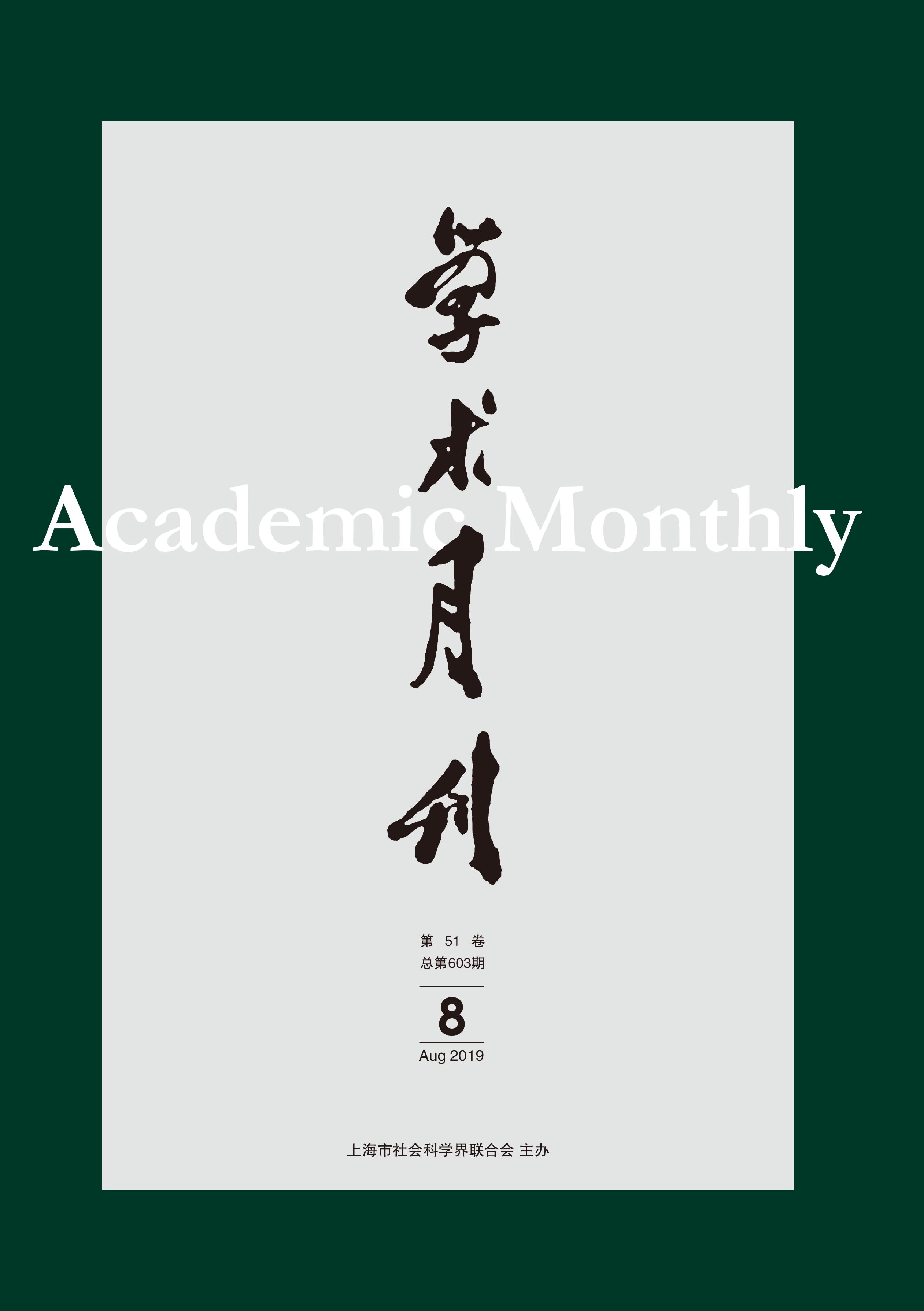Citation:
Wei WANG, Yufei LIU and Yan XU. Grounds of Criminal Penalty between Confucianism and Legalism: The Ancient, Modern, Chinese and Western Dimensions of Penalty for Theft in the Qing Code[J]. Academic Monthly, 2019, (8): 106-121.

Grounds of Criminal Penalty between Confucianism and Legalism: The Ancient, Modern, Chinese and Western Dimensions of Penalty for Theft in the Qing Code
-
Abstract
Modern Western criminal law has three theories for the foundation of criminal law, i.e., the punishment of retribution, of precaution, and incorporation. In Chinese tradition, Confucianism and Legalism which had a far-reaching influence in ancient times, and the issue has been received some related probing, and it can be classified into the " incorporation” theory. It means that retribution, determent and education function is confirmed. Legal penalty is seen as a retribution to crimes, and precaution is the aim of penalty. As for the means of precaution, Legalism emphasizes determent, it believes that penalty is enough, while Confucianism sees its function of education, so, it advocates a comprehensive function of rituals, musics, penalties and administration are to be put together for a function. The development of thousands of years’ traditional legal system in China had been co-founded by Confucianism and Legalism. The traditional theory of penalty is expressed in the Qing Code for theft, which had been agitated, wavered and progressed between different ideas. The current Chinese legal theory and system come from the west, but the traditional theory and practice can be beneficial complements by its positive and negative experiences with a higher level of Confucian " incorporation” and Legalism’s penalty theory
-

-
References
-
Access
-
-
[1]
Jing XIE
. The Law Lays Importance on Criminal’s Motive: The “Subjective Evil” in Law of Theft and Its Practice in Qing Dynasty. Academic Monthly,
2021, 53(4): 118-128.
-
[2]
Dongping ZHOU
, Yifeng XUE
. On a New Theory of the History Regarding the Formation of the Medieval Penalty System of “Five Punishments” against the Backdrop of the Hu-Han Fusion in Northern Dynasty. Academic Monthly,
2021, 53(3): 181-192.
-
[3]
FENG Xiaohong
. From Disorder to Order: The Storage and Allocation of Grain and Forage in Villages in Taihang Base during the Comprehensive Anti-Japanese War. Academic Monthly,
2024, 56(2): 197-210.
-
[4]
XIE Jing
. A Comparative Research of Property Crime System in The Qing Code. Academic Monthly,
2023, 55(10): 99-108.
-
[5]
,
. . Academic Monthly,
2022, 54(8): 209-216.
-
[6]
Williamson Timothy
. Philosophy and Its Future. Academic Monthly,
2021, 53(7): 14-21.
-
[7]
XU Yingjin
. . Academic Monthly,
2023, 55(7): 204-216.
-
[8]
GONG Huanan
. . Academic Monthly,
2023, 55(8): 207-216.
-
[9]
,
. . Academic Monthly,
2016, 48(10): 180-184.
-
[10]
Bing ZHANG
. The Problem of Chinese Philosophy’s Return. Academic Monthly,
2019, 51(2): 17-33.
-
[11]
Zuhui HUANG
. Strategic Orientation and Five Key Points of “Relocation” Poverty Alleviation Strategy in the New Stage. Academic Monthly,
2020, 52(9): 48-53.
-
[12]
TIAN Guoqiang
. Comparison of Moral Philosophies between Smith and Kant. Academic Monthly,
2023, 55(5): 36-44.
-
[13]
Yun CHEN
. Two Interpretation Orientations of the Debate on the Small and the Big in Zhuangzi and their Effective Ranges. Academic Monthly,
2019, 51(8): 13-26.
-
[14]
Fuqiang ZHU
. How to Beware and Deal with Economic Crisis: Two Examinations of the Austrian School’s Policy. Academic Monthly,
2020, 52(1): 52-61.
-
[15]
,
,
. . Academic Monthly,
2017, 49(01): 5-10.
-
[16]
,
,
. . Academic Monthly,
2018, 50(01): 5-10.
-
[17]
ZOU Huan
. . Academic Monthly,
2018, 50(8): 140-148.
-
[18]
Zhibiao LIU
. Determinants and Policy Options of the Establishment of Large Unified Domestic Market. Academic Monthly,
2021, 53(9): 49-56, 84.
-
[19]
Haibo SUN
. Reflections on Moral Legislation from the Perspective of Legal Philosophy. Academic Monthly,
2021, 53(5): 106-119.
-
[20]
Xiaoming WU
. Reflections on the Premise of Comparison of Chinese-Western Philosophies. Academic Monthly,
2022, 54(3): 18-37.
-
-



 沪公网安备 31010102003103号
沪公网安备 31010102003103号 DownLoad:
DownLoad: